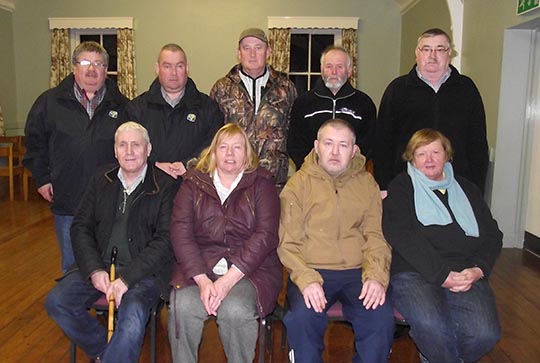Killyleagh is set to stage a series of events to mark the centenary of the guns finally falling silent at the end of the First World War.
A public meeting was held in the town last Thursday night to consider ways of marking the 100th anniversary, including taking part in the chain of 1,300 World War One Beacons of Light to mark the end of the Great War.
The centrepoint of the cross-community commemoration will come on the night of Sunday 11 November when it is hoped to light a beacon at 7pm as part of the Battle’s Over remembrance of the end of the Great War.
“It is hoped it will become the main beacon for the Down area. When the war was declared over in 1918, Killyleagh is recorded as one of the first in the area to celebrate. That night the bells of St John’s Parish Church were rung, bands played, speeches were made and there were two bonfires at the Cross and the Castle,” said Killyleagh Remembers the Great War spokesman Chris Hagan.

“We hope to have one beacon of light. At this stage it looks as if it will be a gas beacon rather than a bonfire or a wood-chip beacon.
“Events that night will follow the format for Battle’s Over which is being replicated at venues across the UK. There will be a sounding of Last Post, we hope to ring the church bells once again and there will be a ceremonial relighting of the town candle which was extinguished in 2014.”
At the meeting in the Lecture Hall unanimous support was given for a funding application to be made for a series of events including a beacon, a commemorative art installation, and events to involve local primary school children.”
DUP councillor Billy Walker and the SDLP’s Terry Andrews both spoke in support of the cross-community work of the Great War project in Killyleagh, and they have already been working behind the scenes to ensure official support for the 2018 project.
Since August 2014, the group behind the project and associated organisations including the Sloane local history group and the Royal British Legion, have organised events to mark the centenaries including the outbreak of war, the 100th anniversary of the Somme and last year’s Messines commemorations when the 36th Ulster Division and 16th Irish Division fought together for the first time.
Chris Hagan added: “We are pleased that the cross-community nature of participation and involvement reflects a shared history… a history of the 242 men and two women from Killyleagh and Shrigley who volunteered in 1914, with 33% being Catholic. It is also a horrific fact that 52 of those who enlisted from the two villages never returned home.”

























